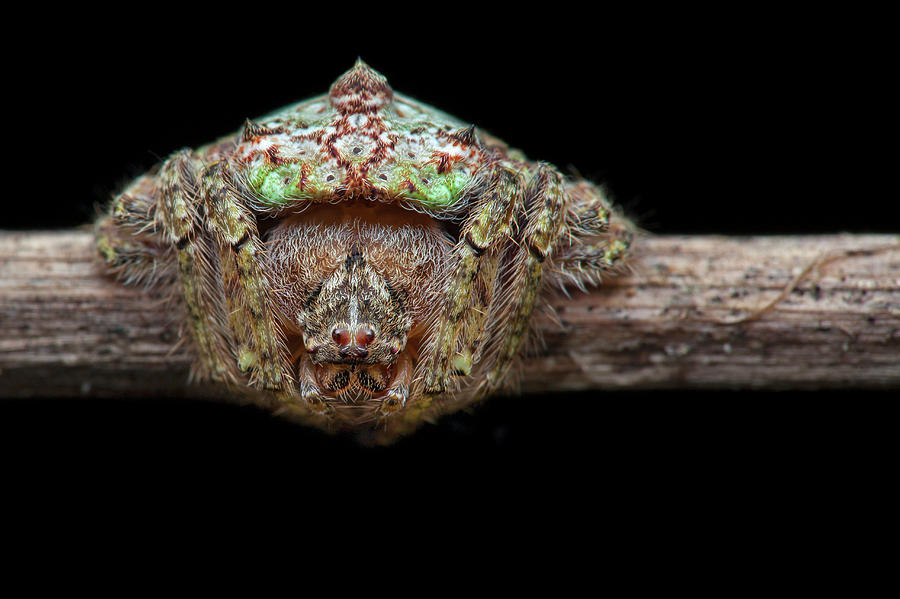
Wraparound Spider Camouflaged On A Branch Photograph by Melvyn Yeo/science Photo Library
The wrap-around spider can grow up to a size of 8mm if it's a female. The males are relatively smaller and can grow up to 5-6mm. Its most distinguishing feature is the shape of its body. The wrap-around spider has a concave underbelly. That explains how it can contour its shape to adhere to a tree branch. Besides that, its ability to hide in.

Real Monstrosities Wraparound Spider
Wrap Around Spider Facts FOR AGES 3 YEARS TO 18 YEARS Fun Wrap Around Spider Facts For Kids Written by Kidadl Team on 05 August 2021 ; Updated on 1 May 2023 Sub-edited by Luca Demetriou ; Fact-checked by Diya Patel 5 mins to read Contents Share this article Get Inspiration For Education!

Wrap Around Spider from Australia What's That Bug?
74 Share 3.1K views 1 year ago Wrap-around spiders are the new pest invading homes in Japan. These venomous creatures can enter through small cracks and crevices and then wrap themselves.

Dolophones (Wraparound Spiders) in Toowoomba, Australia
The Wrap-around spider is a unique creature from Australia. It's part of the Araneidae family. What's cool about this spider? It can flatten its body and curl around trees to hide from danger. That's how it got its special name. Published by Mumpi Ghosh on August 8, 2019. Last Updated: November 7, 2023. Verified by: Spider Team

Spider....!!! Spider, Animals, Spider wrap
Wrap-around spiders, genus Dolophones, are orb-weaver spiders first described by Charles Athanase Walckenaer in 1837.There are 17 species that are endemic to.
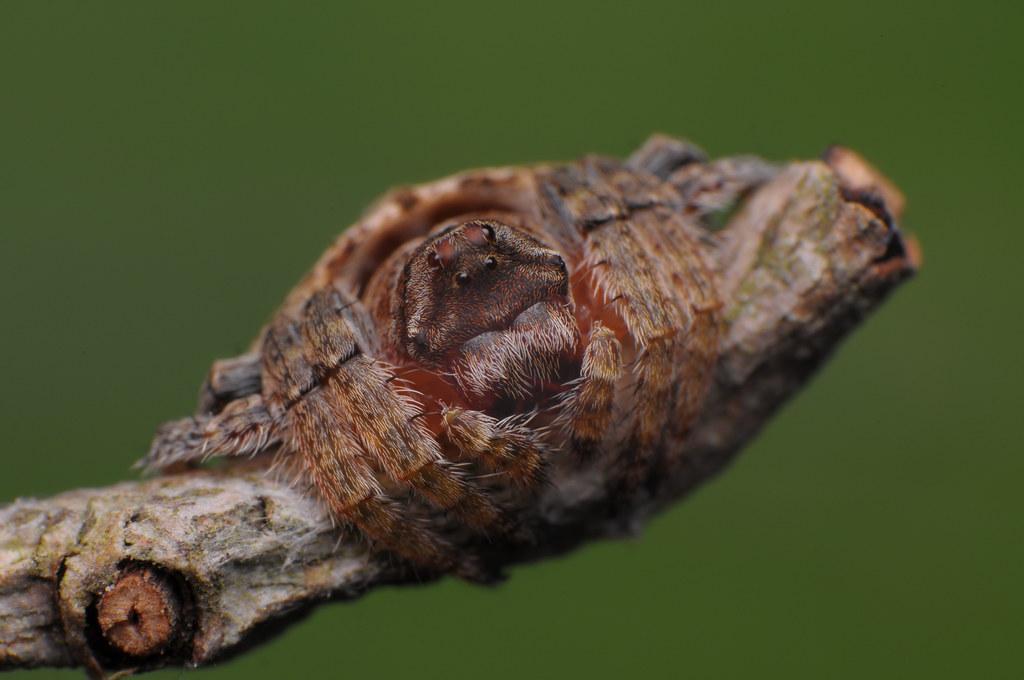
Wraparound Spider genus Dolophones The Wraparound spid… Flickr
Known as the wrap-around spiders, Dolophones is a genus of spider found primarily in Australia and Oceania. The genus contains 17 species known for their abilities to blend seamlessly into their surroundings during the day by wrapping themselves around twigs or flattening against tree bark.
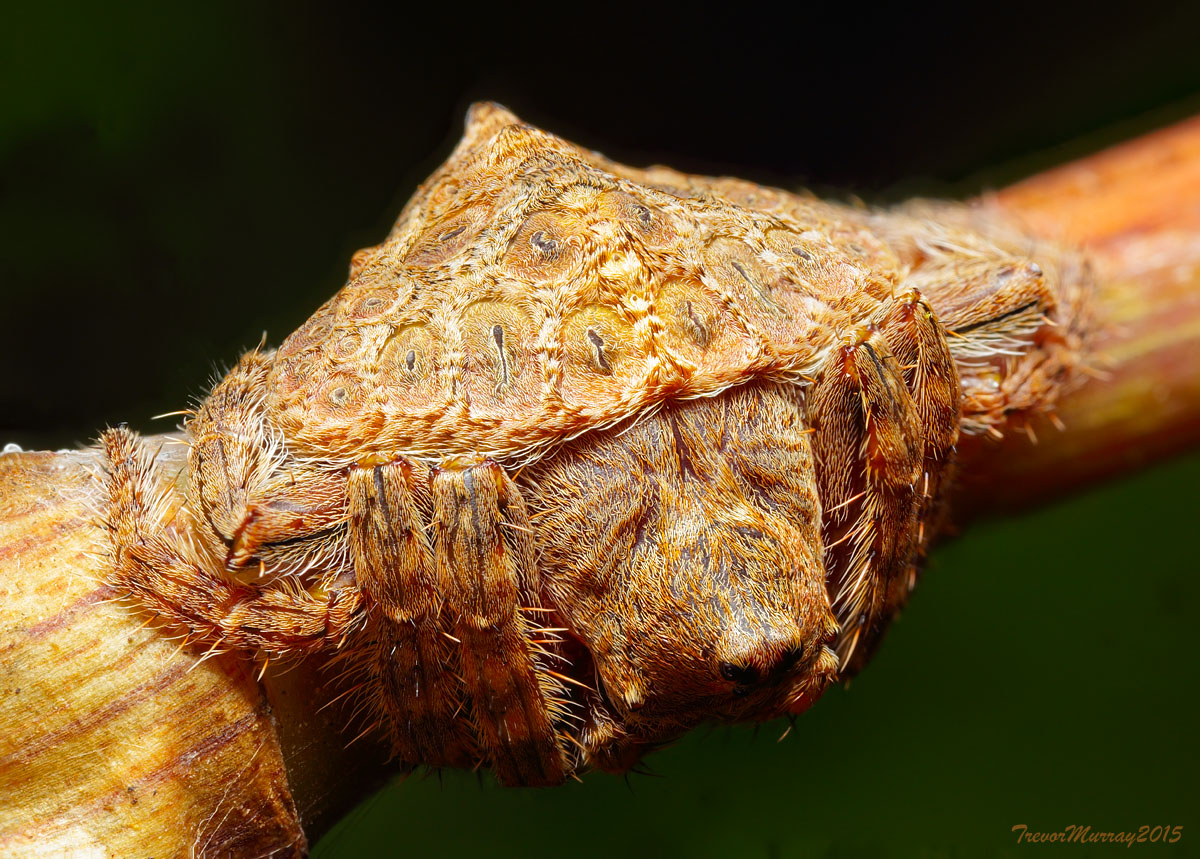
Wraparound Spider JuzaPhoto
Quick Facts Did You Know Scientific Classification Family: Araneidae Genus: Dolophones Spiders Belonging to This Genus Dolophones bituberculata Dolophones clypeata Wrap-Around ( Dolophones conifer) Dolophones elfordi Dolophones intricata Dolophones macleayi Dolophones mammeata Dolophones maxima Dolophones nasalis Dolophones notacantha
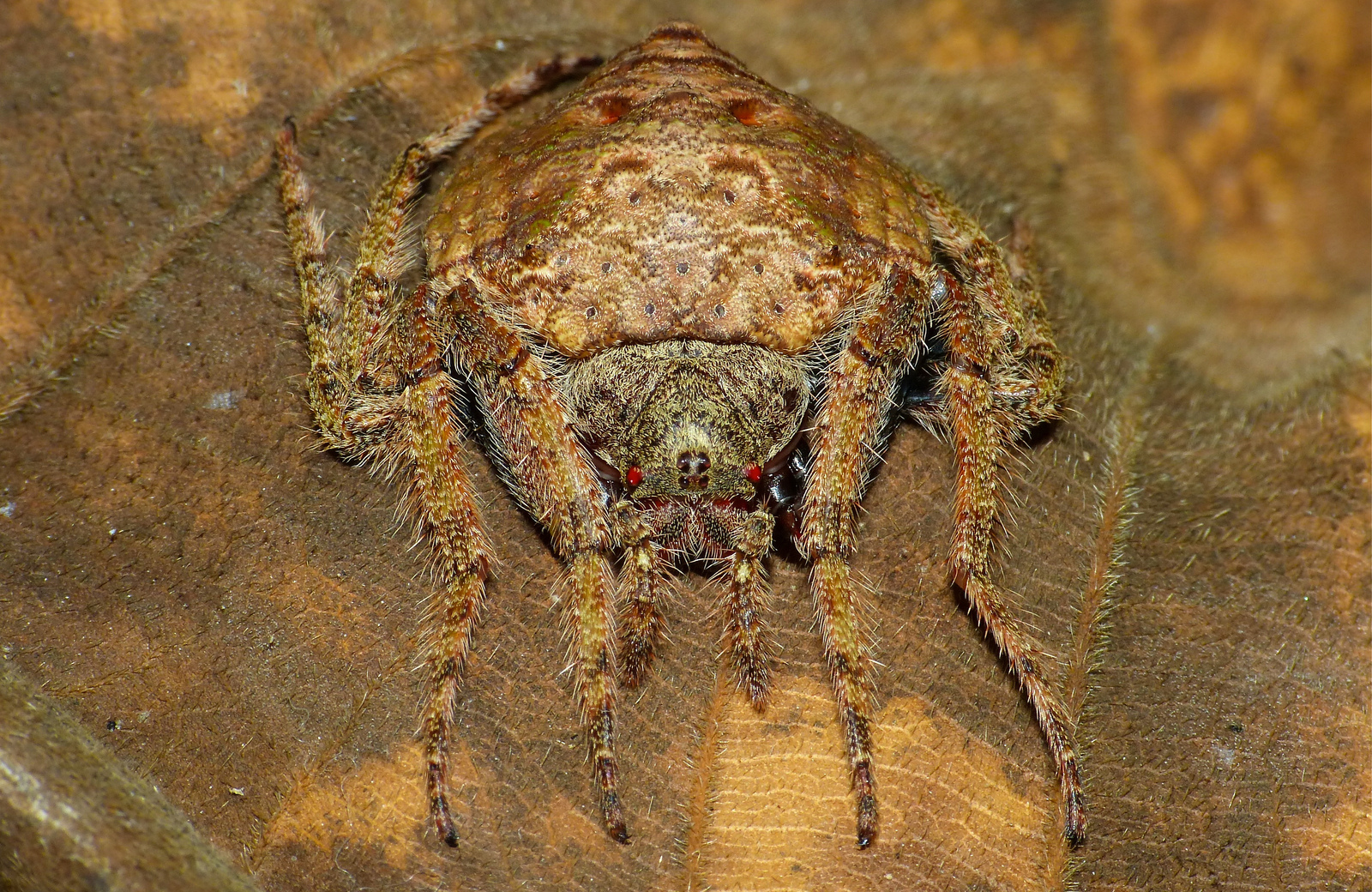
Real Monstrosities Wraparound Spider
The wrap-around spider, scientifically known as Dolophones conifera, is a fascinating arachnid species that captures the attention of both arachnid enthusiasts and casual observers alike. With its unique appearance and intriguing behaviors, this spider has earned its place as one of the most captivating creatures in the animal kingdom.

Dolophones Sp....the Wrap Around Spider of Australia (I'd love to have a few of these to control
Dolophones conifera, known as the wrap-around spider, [2] is a species of spider in the family Araneidae indigenous to Australia. [1] It is named for its ability to flatten and wrap its body around tree limbs as camouflage. [2]
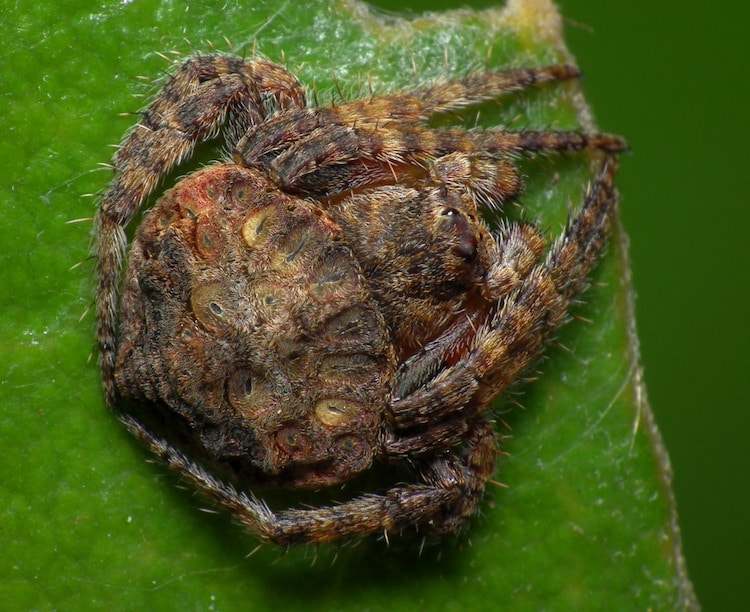
WrapAround Spiders Found in Australia are Masters of Camouflage
PLEASE FOR ANY COPYRIGHTS ISSUE CONTACT US FIRST ON : [email protected] .Wrap Around Spiders Are Real And They're Nearly Impossible To Spot Before I.

wrap around spider Austrailia Bugs and insects, Beautiful bugs, Cool insects
Wrap-around Spider 2. Dolophones pilosa, body length 8mm. The Warp-around spiders are so called because of their concave abdomen curved in such a way that when the spider rests on a twig, it fits well and wrap around the twig. The spider is brown in colour and rest during the day. They build vertical orb web at night.

WrapAround Spider (Dolophones conifer) Facts, Identifications &Pictures
Wrap-around spiders belong to the Dolophones genus, and there are 17 species that are endemic to Australia and parts of Oceania. They're able to flatten themselves so perfectly against the surface of a branch because of their unique body shape.

Flickriver Photoset 'Dolophones (Wraparound Spiders)' by Volker Framenau
Taking the term tree hugger a bit too literally, the wrap-around spider keeps out of sight from both predator and prey by getting close and personal with the local flora. But hiding in plain sight is how this spider survives here in Life, Death, and Taxonomy. Description of the Wrap-Around Spider Brown, black, and gray, with some spots of red.

Wraparound Spider 1 Dolophones conifera
Dolophones conifera (Keyserling, 1886) Wrap-around Spider. Wrap-around Spider is so named for its habit of wrapping itself around a twig or flattening itself against bark. The upper surface of the abdomen resembles a cone shaped shield. It is composed mostly of a series of roughly circular discs each with a small slit in the centre.

Watch this Australian wraparound spider completely hide itself Spider, Arachnids, Tarantula
The wrap-around spider, scientifically known as Dolophones conifera, owes its identification to Count Eugen Wilhelm Theodor von Keyserling, a name as grand as it is lengthy. The Keyserling lineage (originally Keselingk) ascended to nobility generations ago, sparked by the exploits of Hermann, a mayor's son, who embarked on crusades and.
Wraparound spider Project Noah
Dolophones conifera, known as the wrap-around spider, is a species of spider in the family Araneidae indigenous to Australia. It is named for its ability to flatten and wrap its body around tree limbs as camouflage. It is found in Western Australia along with several other species from the genus Dolophones, and was first described in 1886.